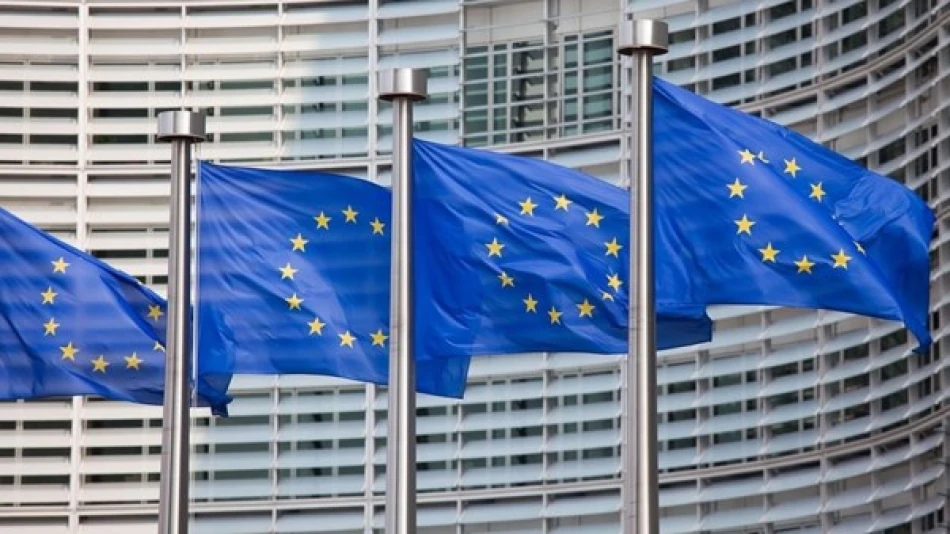
EU Welcomes Armenia-Azerbaijan Peace Deal, Hailing Historic Ceasefire in Nagorno-Karabakh Conflict
EU Hails US-Brokered Armenia-Azerbaijan Deal as "Major Breakthrough" in Decades-Old Conflict
The European Union has welcomed a new agreement between Armenia and Azerbaijan mediated by the United States, describing it as a "major breakthrough" that could finally end one of the world's longest-running territorial disputes. The deal represents a significant diplomatic victory for Washington in a region where Russia has traditionally held sway, potentially reshaping the geopolitical landscape of the South Caucasus.
A Pivotal Step Toward Regional Stability
EU High Representative for Foreign Affairs and Security Policy Kaja Kallas praised both parties and the US administration for the progress, calling for swift implementation of the agreed steps, particularly the signing and ratification of a comprehensive peace treaty. The agreement marks what Brussels considers a decisive phase toward full normalization of relations between the two nations, built on mutual recognition of sovereignty and territorial integrity.
This diplomatic momentum comes after decades of conflict over the Nagorno-Karabakh region, which has claimed tens of thousands of lives and displaced hundreds of thousands more since the late 1980s. The 2020 war between the countries resulted in Azerbaijan reclaiming significant territory, fundamentally altering the balance of power in the region.
Brussels' Strategic Balancing Act
The EU's enthusiastic endorsement reflects its broader strategy to maintain influence in the South Caucasus amid shifting regional dynamics. Brussels has positioned itself as a key mediator since 2021, hosting multiple rounds of negotiations between Armenian Prime Minister Nikol Pashinyan and Azerbaijani President Ilham Aliyev.
Competing for Regional Influence
The US-brokered breakthrough highlights a notable shift in regional diplomacy. Traditionally, Russia served as the primary mediator through the OSCE Minsk Group, alongside France and the United States. However, Moscow's focus on Ukraine and its strained relations with Armenia following the latter's pivot toward the West have created space for other actors.
This mirrors similar geopolitical realignments seen in other post-Soviet territories, where Western institutions have gradually expanded their influence as Russian power wanes. The EU's commitment to continue supporting the normalization process demonstrates its determination to prevent the region from falling entirely under alternative spheres of influence.
Economic Implications and Regional Integration
A lasting peace agreement could unlock significant economic potential for both nations and the broader region. Armenia, landlocked and economically isolated, could benefit from improved trade routes through Azerbaijan to Turkey and beyond. Azerbaijan, rich in energy resources, could position itself as a more stable transit hub for European energy diversification efforts.
The agreement also aligns with the EU's broader strategy to develop the Middle Corridor—a trade route connecting Europe and Asia through the South Caucasus and Central Asia—as an alternative to routes through Russia and China. Successful implementation could attract substantial European investment in infrastructure and energy projects.
Challenges Ahead
Despite the diplomatic optimism, significant obstacles remain. Both societies harbor deep mistrust after decades of conflict, and domestic political pressures could complicate implementation. Armenia faces particular challenges, as many citizens view territorial concessions as betrayals of national interests.
The EU's pledge to provide technical expertise and continued support will be crucial for addressing practical issues such as border demarcation, prisoner exchanges, and the return of displaced populations. Success will likely depend on sustained international attention and resources, as well as the political will of both governments to manage domestic opposition to compromise.
Most Viewed News

 Layla Al Mansoori
Layla Al Mansoori






